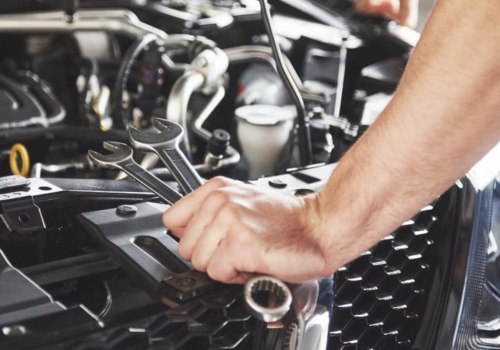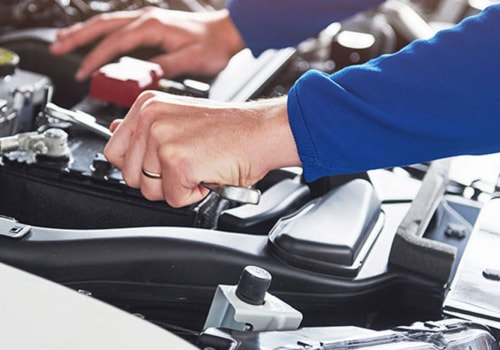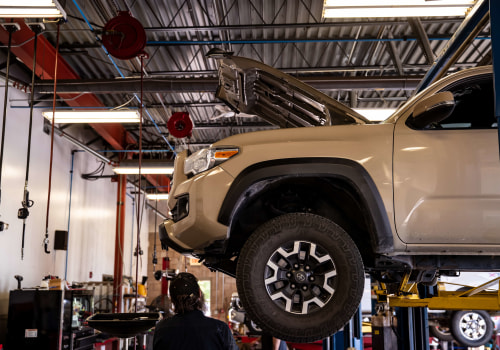Proper mechanical maintenance is essential to identify problems and keep the engine running as it should. Your car will likely have two different air filters: the cabin air filter, which filters air when it circulates inside your vehicle, and the engine air filter, which regulates the air that flows into the engine and helps prevent debris and particles from entering. Making sure both are clean and working properly is an easy solution, and you can even do it at home. Many people know that they need to check their oil, but not so many remember that it is just as vitally important to check the transmission fluid.
The Toco warranty reports that, like engine oil, transmission fluid becomes contaminated as your car ages. You'll know that your transmission is in poor condition if you hear unusual noises, such as squeaks or knocks, when you change gears, or if you see red liquid seeping through the underside of the car. However, regularly checking the transmission fluid should mean that it never reaches that point. All you need to do is locate the transmission oil dipstick near the rear of the engine; however, you should consult the owner's manual for placement before opening the hood.
You can easily restore your engine's performance with a fuel system clean. This is done twice a year and can be done at home or in the auto shop. All you need is to pour a fuel additive into the gas tank and give it time to clean up all that build-up. Tyre pressure, engine oil, and brake oil tests are examples of the tests.
Change engine oil, filter and brake pads as often as recommended by the car manufacturer. Let's look at 10 maintenance services you should have performed at least every year: Oil and Oil Filter - Engine oil and oil filter should be changed regularly, because as the engine runs, small pieces of metal, dirt and carbon end up in the oil and can cause excessive wear on the engine. Non-synthetic oil that was traditionally used in the past always had a general rule of 3,000 miles, but most cars today run on synthetic material, which can safely last between 5,000 and 10,000 miles between oil changes, depending on the type. Remember to also check the engine oil level regularly; once every two weeks and before any long road trip should be enough.
Air Filter - A clogged air filter makes it difficult for the engine to breathe and that can negatively affect performance. Changing your air filter every 15,000 to 30,000 miles is a good rule of thumb; if you park or drive in a dusty environment, change the air filter closer to 15,000 miles. Every month or every few refuels with gas (and especially before any long road trip) it's a good idea to get under the hood of your car and inspect the oil and coolant levels while the engine is cold; low levels of either can cause engine problems if left unchecked. Consult the owner's manual to find both in your specific vehicle.
Engine Fluids - Engine fluids lubricate moving parts to minimize the effects of friction. That's why it's imperative to keep this element clean of contamination and at the level needed to do its job. The owner's manual will provide the manufacturer's recommended oil change frequency, but we suggest an oil change once every 3000 — 6000 miles (depending on the type of oil used).
Tire Pressure
- The air pressure of your tires is crucial for fuel economy as well as for your safety.Underinflated tires reduce fuel economy, compromise handling, wear out the tread and can cause blowouts at high speeds; an estimated 600 deaths and 33,000 injuries are due to underinflated tires annually.
Battery Charging Tests
- As the battery ages, it can no longer hold a charge and eventually runs out. Start battery charging tests (or ask your friendly auto repair shop to do it for you) when the battery reaches the 3-year mark; it's also important to make sure the battery stays clean and free of corrosion.Sticking To A Maintenance Schedule
- Sticking to a car maintenance schedule and keeping a good record of what you've done can help extend the life of your vehicle and protect it from breakdowns, costly repairs, and other unwanted surprises.Preventive maintenance not only keeps cars in top shape for optimal performance but also saves you a lot of money by avoiding total damage.
Driving In The City
- Driving in the city tends to be more difficult in cars than on the road; many of the elements in your car are designed to wear out so you should keep these consumable parts in mind. And of course, it's important to remember that car maintenance costs (while not always cheap) can help you avoid costly repairs in the future. From basic oil changes and fluid flushes to ignition system upgrades, routine maintenance will keep your car in perfect condition; not only that but maintaining a detailed vehicle maintenance history can also help improve its resale value.It is widely known that having a car that looks clean, well-maintained and new has a positive psychological effect on its owner too! Small Marks And Scratches - Driving your car around town on different terrains can often mean that it has small marks and scratches everywhere due to a not-so-great driving style from you or other road users; however this does not affect its performance by chance but does determine how pleasant or prolonged your stay in it will be! Timing Belt - Cars that use a timing belt instead of a timing chain need regular maintenance too; this should be done according to manufacturer recommendations or every 60k miles (whichever comes first).It's important to remember that proper mechanical maintenance is essential for identifying problems early on and keeping your car running as it should; following these 10 essential services will help ensure this!.






